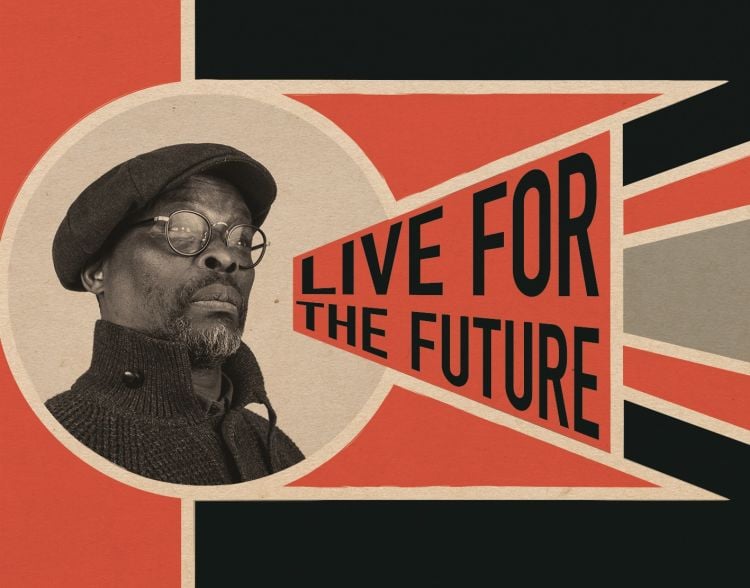METIS:
We Know Not
What We May Be
How can exploring alternative realities
make a difference? We meet performing
arts organisation METIS to see what
impact the arts can have on the big issues...
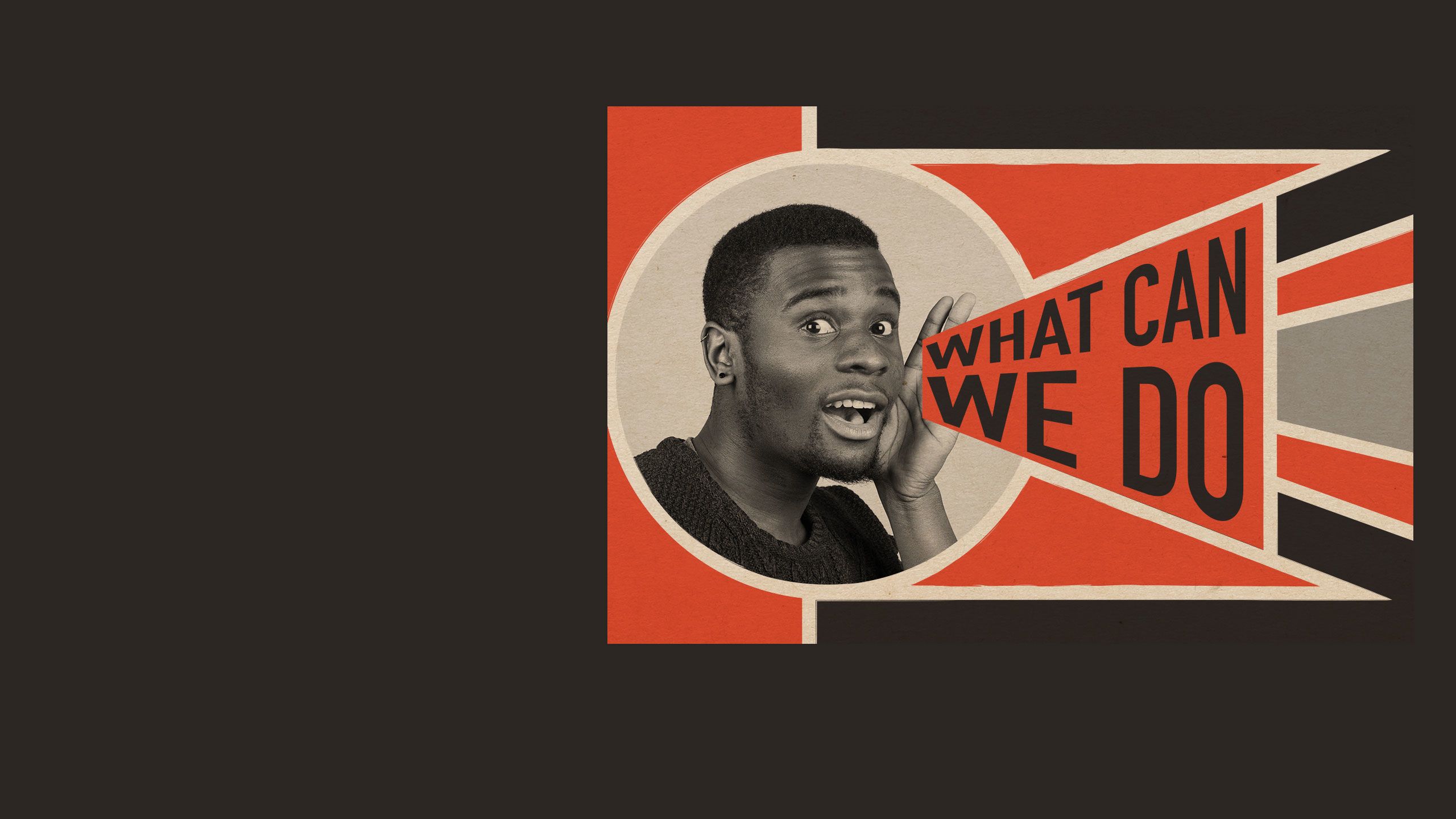
We can all agree that the arts have the power to alter lives, but how much impact can they really make to an issue as huge as global climate change?
More than you might think, says Zoë Svendsen, artistic director of performing arts organisation METIS. The group puts audiences at the heart of their interdisciplinary performances, which ask them to consider the challenges faced by our society. Backed by extensive research, past productions have looked at the global textiles trade through an interactive card game, and examined a human and environmental crisis by creating secret emergency planning cells in which audiences voted to decide what action to take.
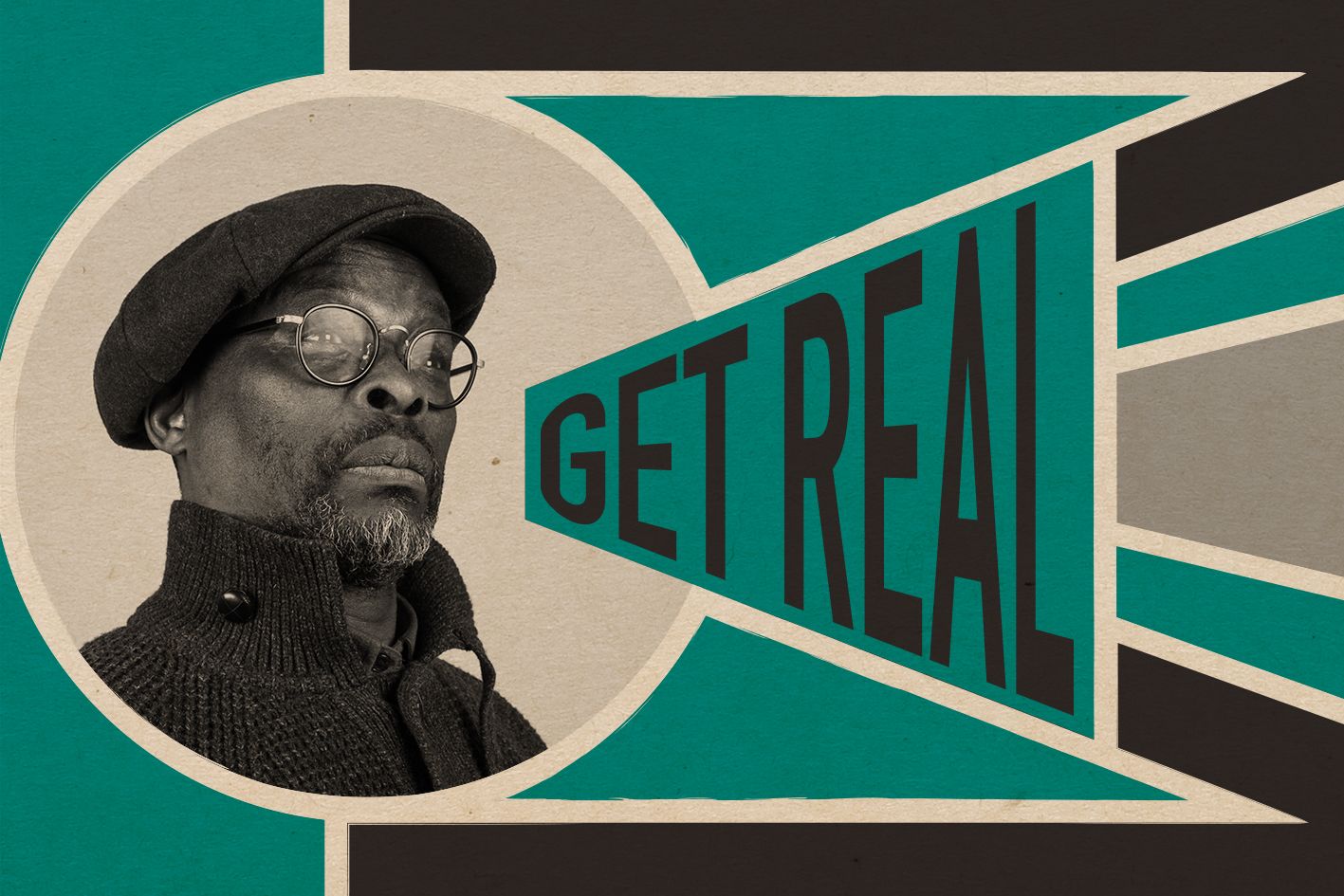
Now, the group is turning its attention to how we live. Its latest work, We Know Not What We May Be, creates a ‘factory of the future’ – an entertaining installation for storytelling and experimentation.
Following a short talk from one of 22 inspirational thinkers such as climate modeller Chris Hope, economist Kate Raworth, artificial intelligence expert Kriti Sharma and journalist Paul Mason, we’re invited to challenge what we think is possible, and find new ways of living together.
'The arts can enlarge the space of imagination.It can invite us to take on ways of operating without having to commit to them yet...'
Zoë Svendsen

‘That’s what We Know Not We May Be aims to do – to imagine ourselves into another world‘, says Svendsen, who is also a University of Cambridge lecturer.
‘With lighting (Guy Hoare), sound (Carolyn Downing) and video (Chris Kondek) the audience is enveloped in an immersive experience. Everyone will have a sense of their part in our 'factory' that we all need to contribute to if we are going to avert the fate climate change has in store for us.’

One of the things that feels overwhelming with something like climate change is its enormity - the scale of change required and the work needed. The idea for We Know Not What We May Be is to break that down into each element, and to give participants the tools to imagine an alternative reality. By imagining it, it makes it seem more feasible and brings it closer to the truth.
‘For example, often you hear of visionary ideas such as Universal Basic Income, re-nationalisation, holding property in common, and co-operatives, but they get talked about in one specific framework; what we’re hoping is that if all these ideas come together, what would our world look like?’
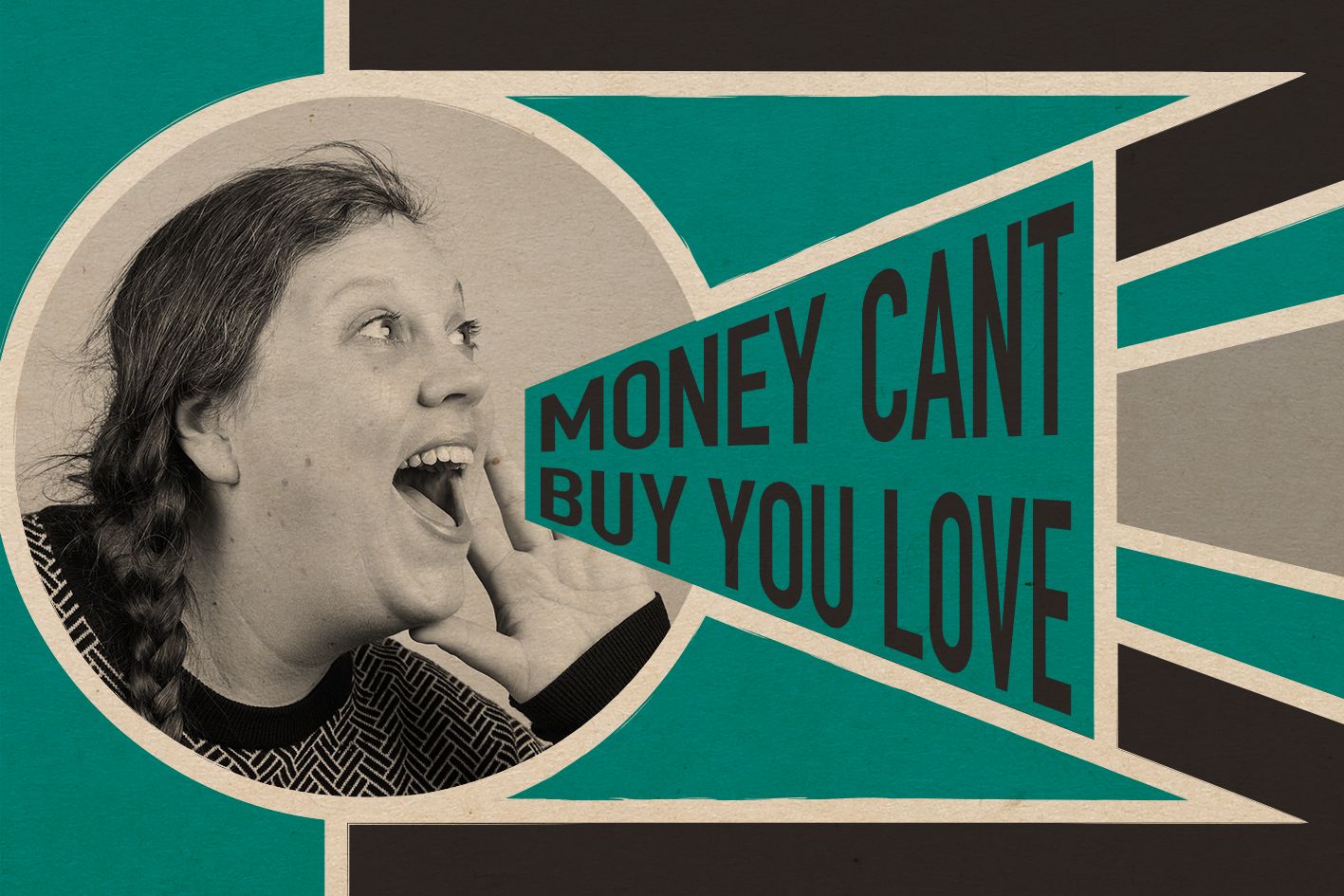
Creating small change can be straightforward enough, but it’s more complicated to reframe our values about success. That’s where stories come in, says Svendsen. ‘You cannot take on board that kind of information in a really serious lecture. If you try to explain a complex system to anyone it’s hard to describe and it’s hard to listen to. No traditional theatre or exhibition will achieve that in the same way that taking part does.’
And the results are evident. After previous productions, METIS noticed audiences were leaving asking ‘what can we do about this?’ The outcome is this work, which shows people examples of what they can do to make a difference.
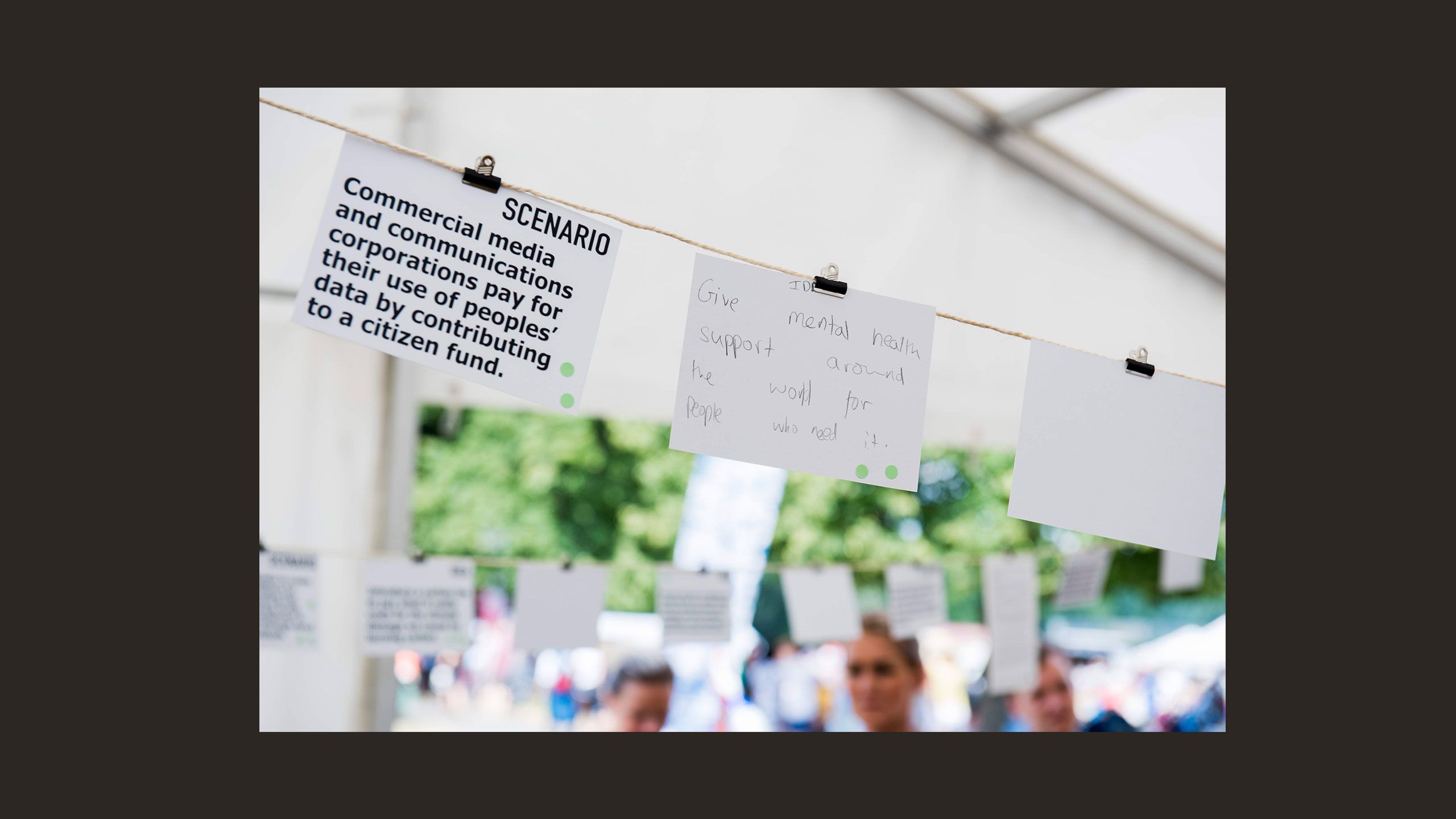
The piece has been developed in a typical METIS way – through collaboration and by putting the audience at the centre of the process. Research was carried out through publicly-held interviews with experts, asking them ‘what’s the best alternative economic structure to combat climate change?’
The production is part of our 2018 season, The Art of Change, which explores how artists respond to, reflect and can potentially effect change in the social and political landscape. The reflections have stimulated change within the Barbican itself, as we respond to themes raised by the season, including the environment. In partnership with our caterers, we’ve banned plastic straws from all our bars, restaurants and cafes. Last year we used 50,000 straws, so this cuts out a large number from circulation. Instead there will be paper straws, available on request.
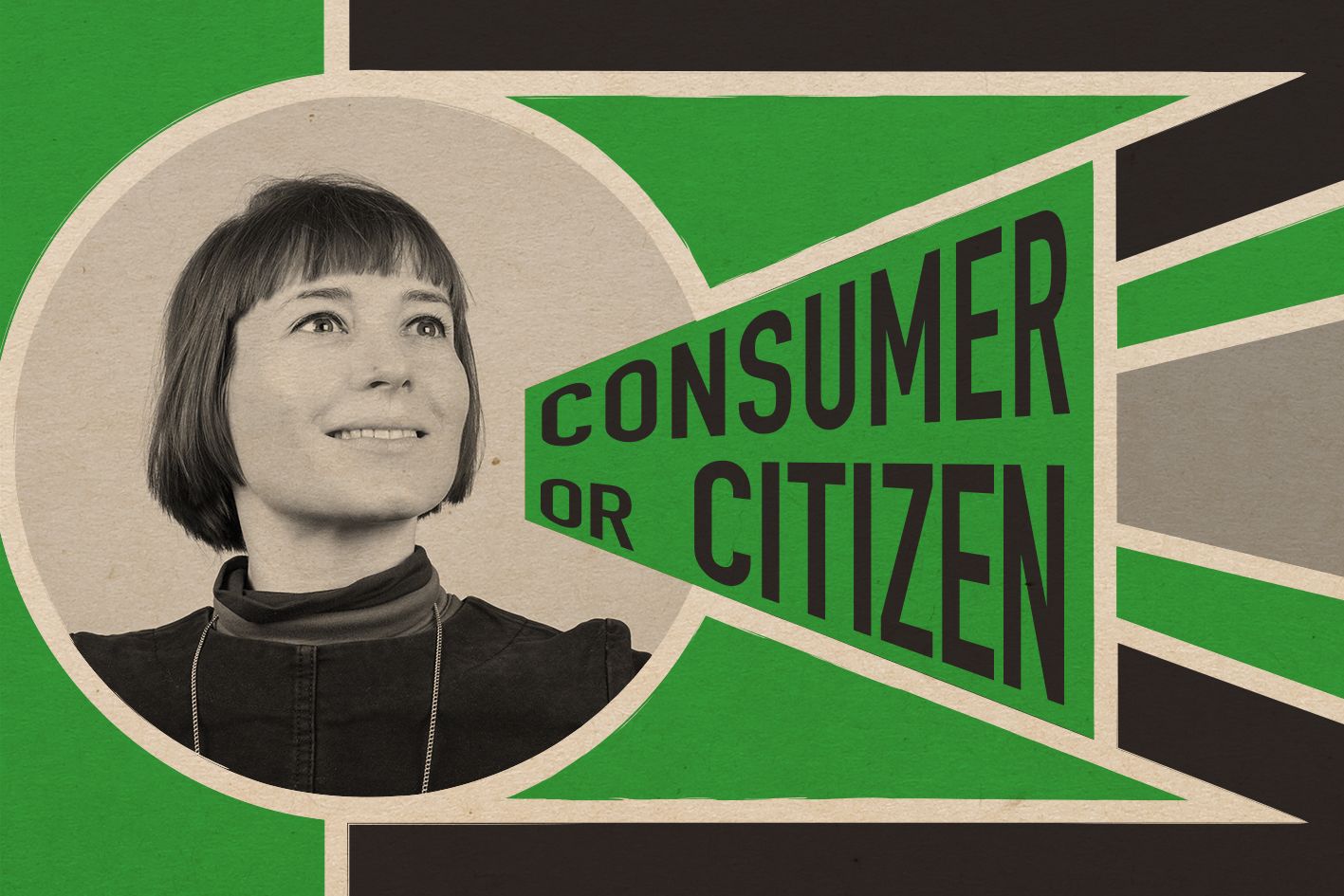
Considering such weighty issues relating to global problems all the time, does Svendsen ever get demoralised? ‘It’s actually quite cathartic and comforting,’ she laughs.
‘Problems don’t go away just because you don’t think about them. There are serious levels of anxiety in our society because on every level there’s stuff that’s fearful, but getting together and talking about it really helps. That’s what I’ve found doing this – you find yourself in conversations with somebody you might not normally talk to, and end up in a really rich, intense but fun conversation. And you feel better afterwards. If you read newspapers or social media it’s like a hammer in your brain, but talking about it helps.’
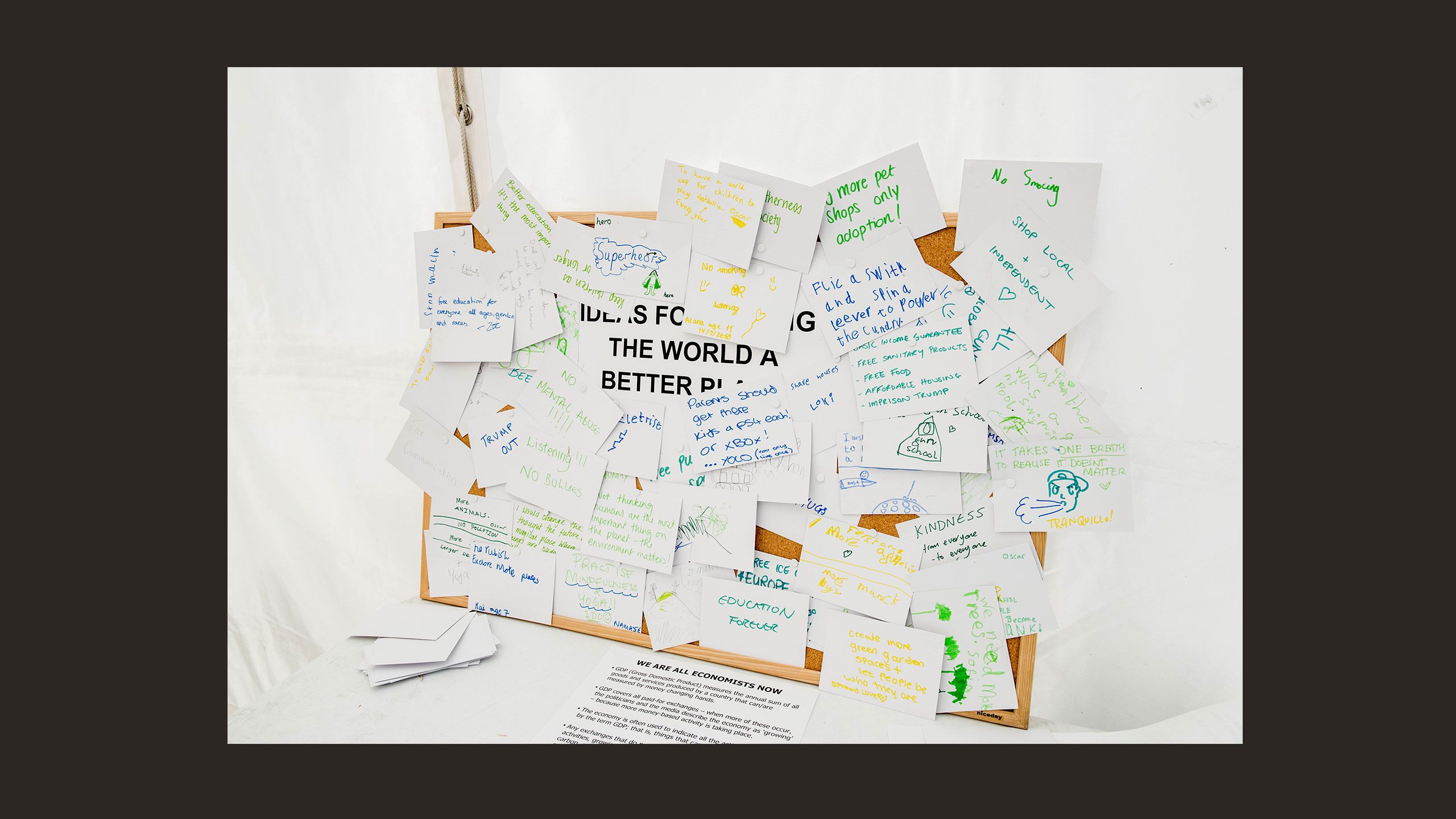
METIS: We Know Not What We May Be
6–9 Sep, The Pit
There’s never been greater urgency for change. But what shape could this take and who will be in charge? Join us as we ask if human ingenuity can restore our relationship to each other and the planet.
Part of The Art of Change, a season exploring how artists respond to, reflect and can potentially effect change in the social and political landscape.
Words
: James Drury. Originally published in the Jul/Aug Barbican Guide.
